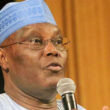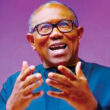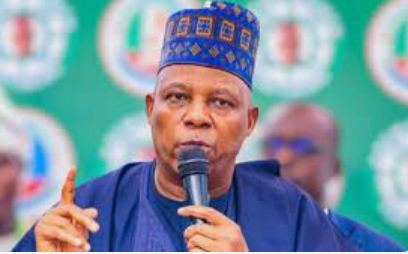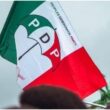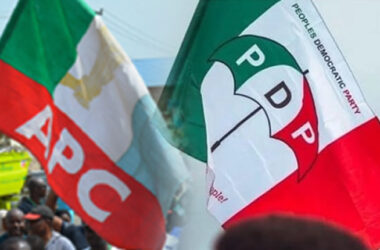The United States Chamber of Commerce has announced its plan to invest approximately $320 million in Nigeria’s mortgage refinancing and Small and Medium Enterprises (SMEs) sector.
This was revealed during a US-Nigeria Executive Business Roundtable organized by the US Chamber of Commerce as part of the ongoing 79th Session of the United Nations General Assembly in New York.
Ms. Nisha Biswal, Deputy CEO of the U.S. International Development Finance Corporation, made the announcement on Monday.
The news was shared in a statement by Mr. Stanley Nkwocha, spokesperson for Nigerian Vice President Kashim Shettima, who is currently leading Nigeria’s delegation at the UN event.
Biswal explained that a substantial $200 million out of the $320 million would be invested in mortgage refinancing in Nigeria. This is aimed at boosting the housing sector in the country and making homeownership more accessible.
Additionally, $100 million will be allocated to the First City Monument Bank (FCMB) to support SMEs in Nigeria. The fund has a special focus on empowering women in business, recognizing their crucial role in the nation’s economic growth.
Furthermore, an additional $20 million has been set aside for Robust International, a company specializing in cashew nut processing in Nigeria.
Biswal stressed the U.S. Chamber’s long-term commitment to supporting Nigeria’s economic development through sustainable policies and partnerships. She highlighted the importance of continued collaboration with Nigerian businesses to ensure lasting progress.
In response, Vice President Kashim Shettima expressed gratitude for the investment and reiterated the Nigerian government’s focus on creating a business-friendly environment.
He stated, “I urge you to give Nigeria the benefit of the doubt. The current administration led by President Bola Tinubu is the most investor-friendly administration in Nigeria’s history.
“When fuel subsidies were an albatross around Nigeria’s neck, President Tinubu, from day one, acted decisively by removing the fuel subsidy and unifying the multiple opaque foreign exchange markets.”



